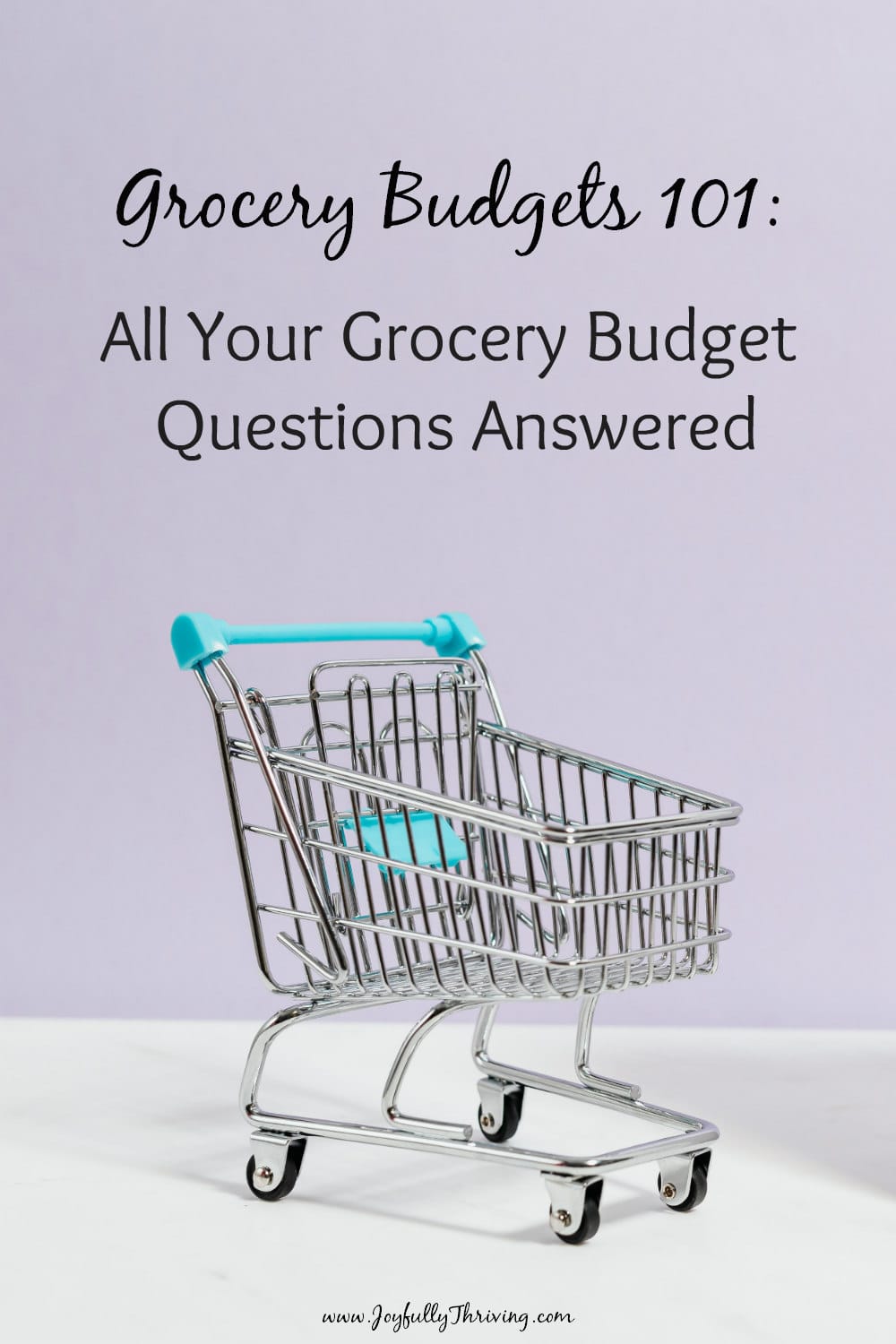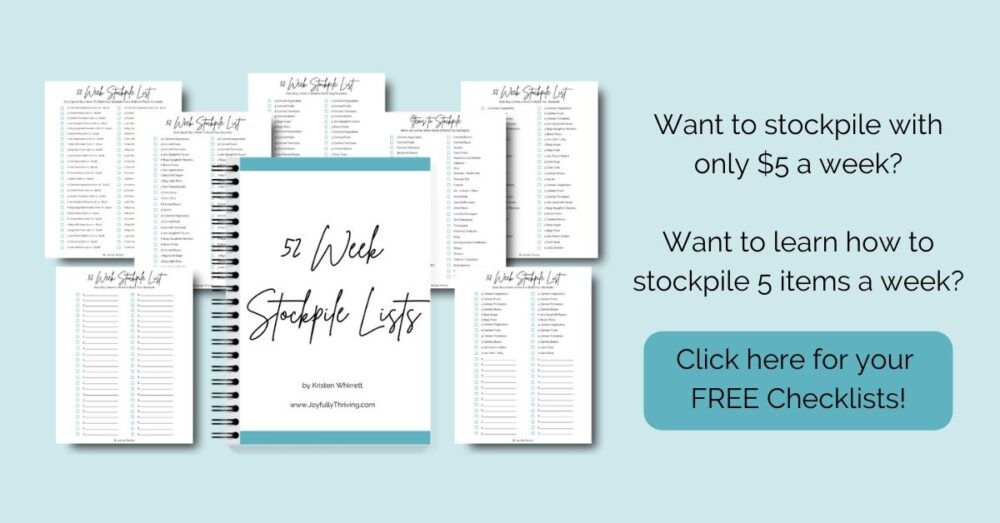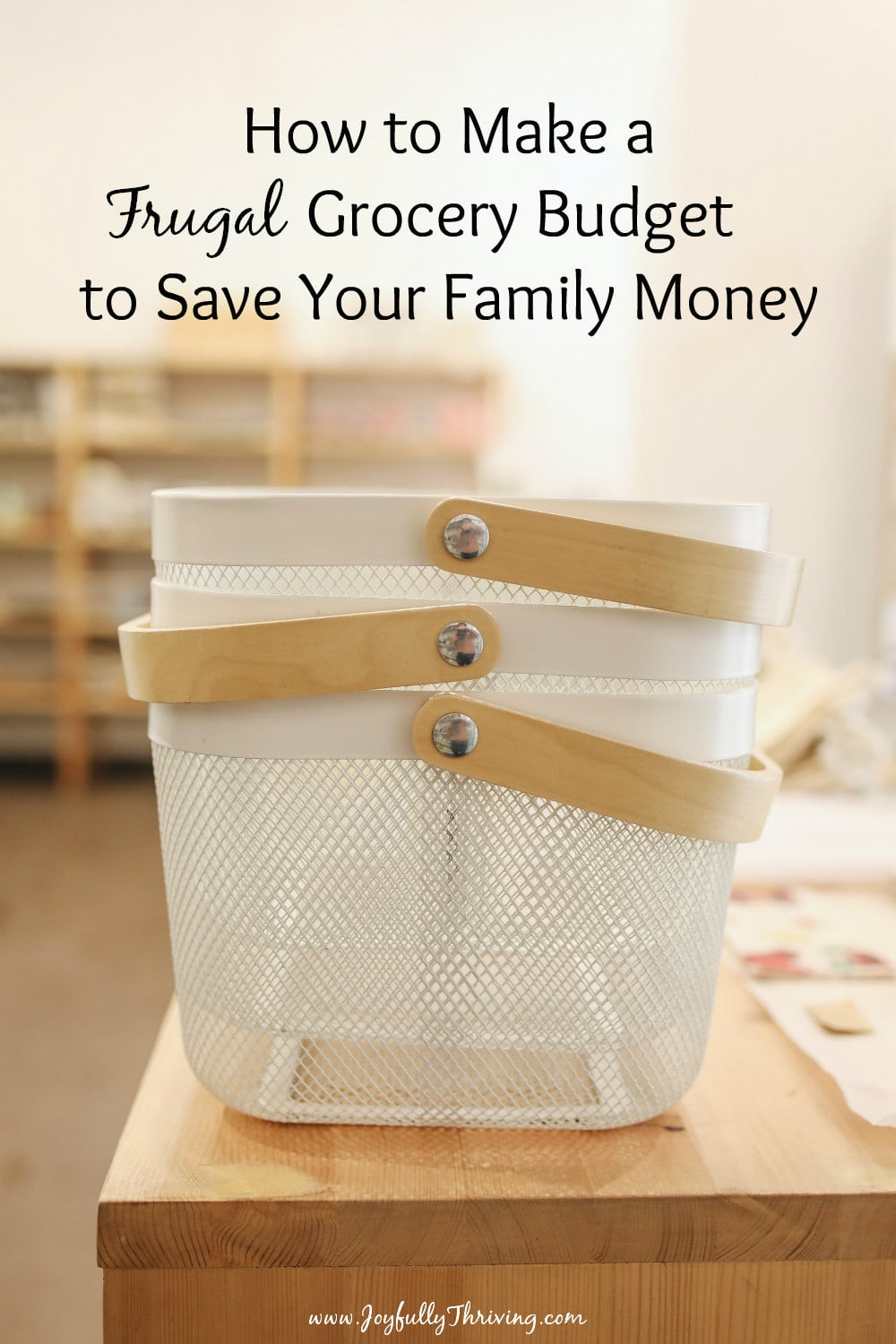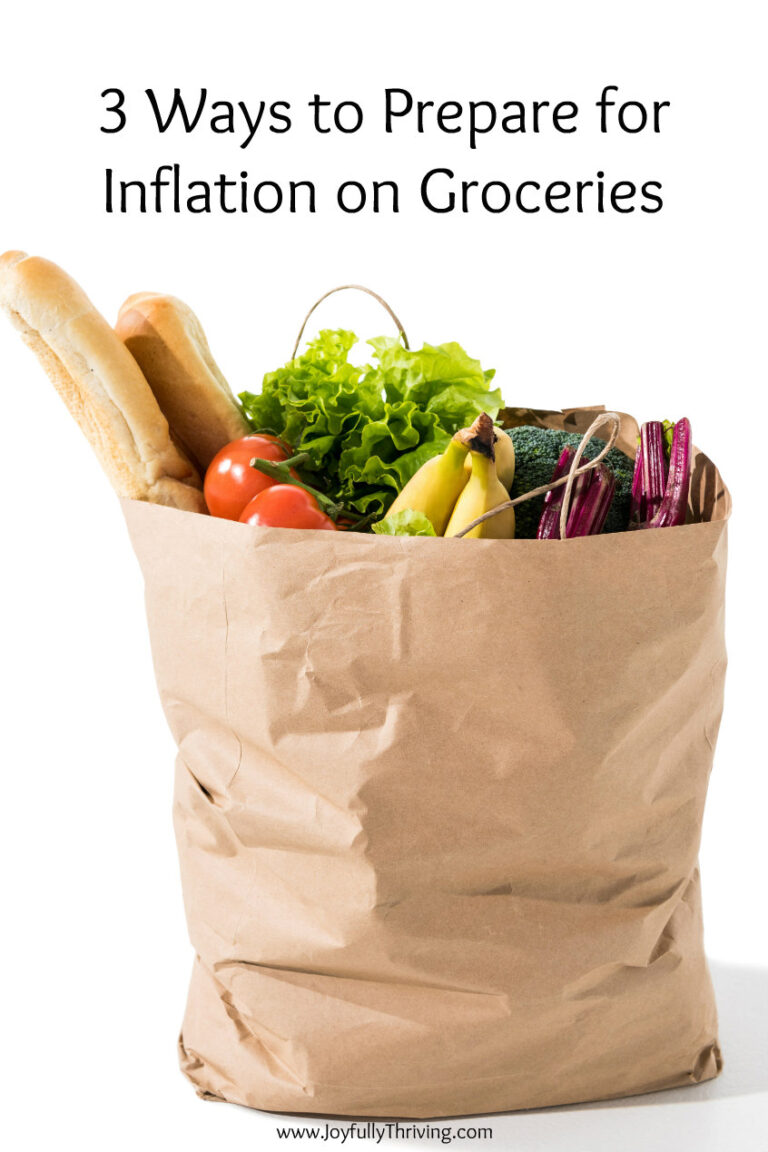How to Make a Frugal Grocery Budget
If there is one thing everyone wants to know, it is how to save money on groceries. I can tell you that the answer is simpler than you might think. You need to make a frugal grocery budget.
I am self proclaimed grocery geek. I have grown into this title over the years because I truly love saving my family money. (Here is proof with some pictures of my shopping trips!) I get so excited to come home and tell my husband how much money I saved at the grocery store. Saving money on groceries is one of the things I talk about regularly here on the blog because I believe everyone can save money on their groceries.
In all my years of talking about groceries, several interesting grocery budget questions have come up. I want to do my best to give my honest and frugal take on grocery budgets here. Whether you are just starting to make a grocery budget or are simply looking for ways to reduce your grocery budget, I hope these answers will be helpful.
Ready? Let’s talk about how to make a frugal grocery budget!
This post may contain affiliate links. As an Amazon Associate, I earn from qualifying purchases. You can read more in my disclosure policy.
How much should I budget for groceries?
The answer is simpler than you think.
You budget what you can afford. For a frugal grocery budget, you budget slightly less than what you can afford.
I know it is overwhelming to figure this out, especially if following a grocery budget is new to you. So let me answer some more grocery budget questions right now.
How much should groceries cost per week?
There really is no one size answer that can tell you what groceries will cost. It depends on many factors.
If you live on the coast, groceries are more expensive than if you live in the Midwest.
If you have a variety of groceries to shop at, your groceries will cost less than if you are limited to one or two stores.
If you have allergies in your family or want to buy more organic produce, your groceries will cost more.
The USDA developed four food plans, that are customized by family food size. You can choose from the thrifty plan, the low cost plan, the moderate cost plan and the liberal food plan. If you have never looked at these charts before, you need to look at them. The charts are updated regularly to reflect current average prices across the country.
It is fascinating to me. On the thrifty plan, our family of 6 should spend $831.7. On the liberal plan, we should spend $1618.20! I can’t imagine spending that much on food. In reality? Our family of 6 spends $425 a month on groceries – and that includes paper products, toiletries and diapers.
Looking at this gives you a general ideas of what groceries can cost. That is not to say you can or should spend this much. It is just a tool for you to use.
How much should I budget for groceries?
There are two ways to budget for groceries. You can start your budget with a dollar amount or with a percentage of your income.
If you are looking for a general rule of thumb dollarwise, try budgeting $100 per family member for the month. This is a more frugal grocery budget recommendation than the USDA food plans.
Just remember that every family has a different budget for different reasons. As I have said before, my grocery budget shouldn’t be yours.
Choose a number that works for your family and adjust from there.
What percentage of income should you spend on groceries?
If you want to look at it another way, try thinking about your budget in terms of percentages.
Dave Ramsey recommends spending 10% of your income on groceries. If you choose to include eating out in that category, he recommends 15%.
If you want to try budgeting with a percentage, I recommend making your grocery budget based on 10% of your income.
Learn more about Dave Ramsey’s budget percentages and try using that percentage in your grocery budget.

How do I set a weekly grocery budget?
A weekly budget is best for those who are just starting to shop with a grocery budget. If you tend to buy the same things every week, a weekly budget might be right for you.
A weekly grocery budget keeps you on track because it is easy to see when you are getting close to using your budget amount.
To set a weekly grocery budget, simply take the monthly dollar amount you decided on above, and divide by the number of weeks in that particular month (4 most months).
If you have money left over at the end of the week, you can add it to next week’s grocery budget…or put it in savings!
Should I use a monthly grocery budget instead of a weekly budget?
If you are a more experienced grocery shopper and like shopping for deals, I recommend you use a monthly grocery budget.
This allows you to stock up whenever you see a particularly good deal. I use a monthly budget for this reason. I frequently spend more of my money in one week (like when I find a meat sale), and then adjust and spend less the following week.
You must keep close track of your shopping totals for a monthly grocery budget to work. I keep a running list on my phone of all my monthly shopping trips and how much I’ve spent. I subtract each trip from my total so I have a running total of how much I like to spend.
If you are not sure which one to use, try a weekly grocery budget and then try a monthly grocery budget and see which one works best for you.
How do I make a grocery budget?
Now that I’ve answered the technical questions, let’s make it practical. It’s time to make your grocery budget.
Did you decide on using a percentage or a dollar amount? Are you going to budget weekly or monthly? Take those answers from above and plug in a couple more details.
Think about how many people are in your family. What do you typically buy, and do you want to buy more (or less) of something?
Now, look back at your grocery receipts or your credit card statements. How much do you currently spend on groceries? How much do you want to spend on groceries? (You can do a grocery audit to help you get a more complete grocery picture too.)
Think about all those grocery questions and write down your grocery budget number.
Don’t worry! Your grocery budget isn’t set in stone. You can tweak it and adjust it as the months go by.
For now, you need to pick a number for your grocery budget. Then, track every single trip you take to the store.
Write it down and subtract it from your weekly or monthly budget amount so you can see how much money you have left to spend.
If you use a credit card, keep a running total of your groceries on your phone or on a monthly budget note, so you can monitor your budget.
If you use cash, put all your grocery budget money for the week or month into one envelope. You can write your trips on the outside of the envelope to remind you how much you have already spent.
After a couple months, look at your grocery budget again. You should come back to your grocery budget regularly to reassess. Does that number still work for you, or are you ready to reduce it further?

How do I reduce my grocery budget?
There are so many great ways to reduce your grocery budget! Let’s start with the 3 best ways to save money on groceries.
1. Only buy meat when it is on sale.
Meat is one of the largest expenses in a typical grocery budget. By only buying meat when it is on sale, you will save a substantial amount of money. This is a great first step to take in reducing your grocery budget!
2. Plan your menus around the weekly sales.
To save even more money, look at the sale ads and plan your meals around the sales. Is chicken on sale this week? Plan chicken main dishes. Are apples, grapes and green beans on sale? Make those your fresh produce choices for the week. The more things you can buy on sale instead of at regular price, the more money you will save.
3. Shop the sales and buy one for now and two for later.
Another great way to save money on your groceries is by planning ahead and stocking up on sales. It takes a bit of practice but this is called building a stockpile.
When something goes on sale that you use (like peanut butter), buy 1 for now and 2 for later. Say peanut butter goes on sale for $1 instead of the normal $2 price. By buying yourself 3 jars now, you saved $3 and the time you would run to the store when you run out of something.
Learn Everything You Need to Know about How to Stockpile here.
Where can I learn more about saving money on groceries?
If you want to learn more in-depth and practical strategies about saving money on your grocery bill, you need to read Crystal Paine’s Slash Your Grocery Budget ebook.
Honestly, I could have written this book! Crystal (of Money Saving Mom fame) shares 25 tried and true strategies for keeping a frugal budget. (She spends even less than I do at $70 a week for her family of 6. I spend $100 in comparison.) From using the buy ahead principle to becoming best friends with your freezer…Crystal covers it all!
I guarantee you can quickly make your money back on this bargain priced ebook with all her tips!
Learn more about Crystal’s Slash Your Grocery Budget ebook here.
Want More Tips about Shopping on a Grocery Budget?
Here is some additional reading to help you make your very own frugal grocery budget, and start saving money on groceries!
- What is the Cheapest Grocery Store to Shop At?
- 10 Easy Ways to Cut Your Grocery Budget without Using Coupons
- 2 Easy Coupon Apps to Save You Money
- Quick Ways to Save on Your Very Next Grocery Shopping Trip
Remember, everyone should have a grocery budget – and everyone can save money on groceries!










This was very helpful thank you.
So many great answers here, Kristen! You are truly the queen of saving money at the grocery stores. Buying meat on sale is one of the tips I learned from you years ago, and I still use it today to save a lot of money each month!